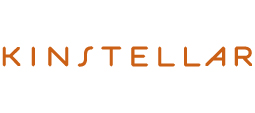The Czech Republic has been a key global entertainment industry player for decades – whether through the quality of its local film production services, or the country’s use as a filming location, or with respect to developing world-famous video games. Now, in order to respond to the constantly evolving entertainment industry, to strengthen the competitiveness of the Czech audiovisual market, and to ensure the country remains a priority destination for major players developing film, series and video game projects, the Czech incentive scheme has been overhauled by lawmakers.
Specifically, Czech lawmakers have just passed the most extensive amendment to the Czech Audiovisual Act in recent years (the “Amendment”). The Amendment passed the Senate today, will soon be signed by the President and is expected to come into effect on 1 January 2025. The changes related to the production incentive system are set to take effect a year later.
Specific changes introduced by the Amendment are highlighted below.
Changes to film incentive scheme
The Amendment introduces significant changes to the Czech film incentive scheme, with the goal of increasing state support for audiovisual production in the country.
Support is set to increase from 20% to 25% refund of eligible costs incurred at least partly in the Czech Republic for feature films, feature series and documentary films. The introduction of the 25% rate for eligible costs will also newly apply to documentary series.
For animated films and series and for digital production / post-production work, the amount of state support is set to increase from 20% to 35% refund of eligible costs.
Moreover, in order to satisfy the demands of certain large-scale production projects by foreign producers, and at the same time prevent the outflow of such projects to other countries, the maximum possible incentive amount per project will increase from current CZK 150 million (approx. EUR 6 million) to CZK 450 million (approx. EUR 18 million).
Furthermore, the Amendment reduces the minimum required runtime for feature films, feature series, animated films, animated series and documentary films to qualify for an incentive. Here we can see how Amendment is responding to new trends and tries to make series production more eligible for the Czech incentives. This reflects changes in content consumption, with younger viewers used to watching shorter formats, with VOD services and TV adapting to such habits.
The Amendment also establishes new categories of animated works (both film and series) with a lower limit of minimum Czech expenditures, allowing more animated projects to qualify for incentives.
A fundamental change from the current incentive system is the transition from a three-phase decision making incentive process (registration, allocation of funds, payment of the incentive) to a more simplified two-step process (project registration, payment of the incentive) where the first and second phases merge and are now called “project registration”. The initial project registration phase is initiated by the application for registration of the incentive project, which must be submitted before the start of production of an audiovisual work in the Czech Republic.
The amendment also introduces a new category of eligible costs, namely pre-production preparation costs, which can include costs incurred up to six months prior to the submission of the project registration.
New support for video games and small-screen projects
A ground-breaking change in the incentive system is its extension to support video games and small screen works.
The Czech video game industry is strongly geared towards exports. According to the Explanatory Memorandum to the Amendment, more than 95% of Czech game production is for the global market. In 2021, the turnover of Czech video game companies reached a record CZK 7.11 billion (approx. EUR 283 mil.), and in the same year video game companies paid CZK 395 million on the income tax alone.
Video game developers will now be able to apply for financial support for their projects similarly to film and television production companies. According to the Amendment, state support will be provided via grants, with the state receiving a share of profits. In other words, video game companies receiving grants will be required to pay a percentage of their revenues back to the Czech Audiovisual Fund.
In addition, the Amendment also sets forth support for small-screen productions, made available through television broadcasting or streaming platforms.
The Fund will specify the detailed criteria for granting support for video games and small-screen productions via its Statute, which is currently being drafted by experts and should be issued in spring 2025.
New fees for VOD providers
The Amendment makes use of an option authorised via the European Audiovisual Media Services Directive (“AVMS Directive”) and also imposes an obligation to pay a fee from on-demand audiovisual media services to those VOD providers that are not established in the Czech Republic but nonetheless still target end-users in the Czech Republic. Many EU Member States have already implemented these fees in accordance with AVMS Directive and the Czech Republic is following this trend.
The above-described fee concerns revenue from (i) on-demand audiovisual media services in the Czech Republic and from (ii) audiovisual commercial communications displayed to end-users in the Czech Republic, which are associated with the provision of on-demand audiovisual media services there. The fee calculated from these revenues (i.e. from both the provision of service in the Czech Republic and commercial communications) is 2%.
The Amendment enables providers to reduce such fees by up to 50% through direct investments. These investments can be, for instance, in the form of funding Czech production. If no direct investments are made, VOD providers must pay an additional fee of 1.5% of their total revenues in the Czech Republic (this additional fee is proportionally reduced based on the extent of direct investments undertaken).
Conclusion
The Amendment represents significant news for the entertainment industry, offering a much more attractive incentive scheme for those that want to realize their production projects in the Czech Republic. Foreign producers and video game companies in particular should take note.
Our dedicated entertainment law team will continue to keep you updated on the latest developments and is standing by to offer guidance and counsel.
By Petr Bratsky, Managing Associate, and Anna Marciano, Junior Associate, Kinstellar


